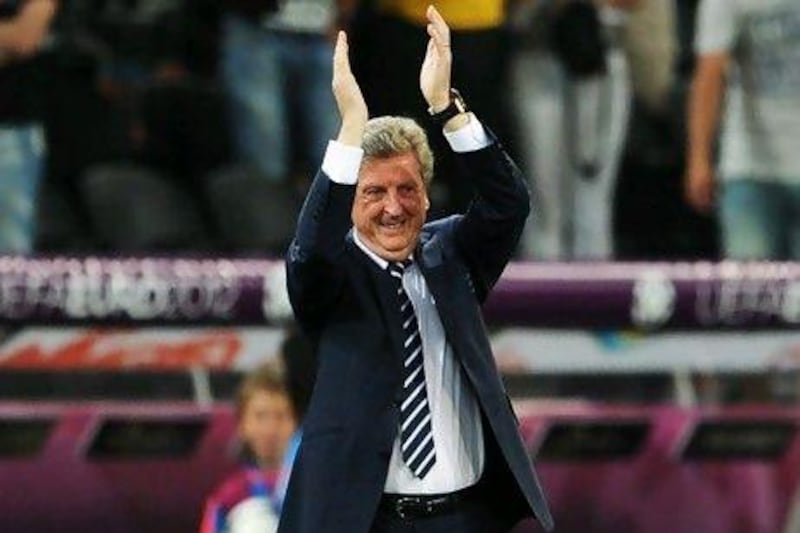For a man whose methods remain remarkably consistent, Roy Hodgson's fortunes have fluctuated rapidly.
The last few years have seen a rise, fall and another rise in his standing in his homeland, the country that long seemed immune to the globetrotter's virtues.
Now there is belated appreciation for his meticulous planning and low-key approach. Or there is from the majority anyhow: overcome Italy and his most vituperative critics will be still more isolated and left looking still more bitter.
These have been eventful years for Hodgson, from taking Fulham to a European final - an achievement so astonishing that it belongs near the top of his accomplishments in a 36-year coaching career - to the ignominy of his dismissal by Liverpool after the shortest managerial reign in Anfield history. His rehabilitation began at West Bromwich Albion, continued with his appointment by England and, if a nation was initially nonplussed, has accelerated with last-eight Euro 2012 qualification as group winners.
The veteran is suddenly a man for our times, one pleasantly surprised by England's results. After the preceding decade of hype, he was the low-expectations appointment. There are no boasts, only a promise to work hard. There is a theory that Hodgson, 64, works best with limited players but there appears an acknowledgement the England are a limited team, one where order and organisation are required.
They are a side with earthy attributes, where the endeavour of James Milner and Scott Parker compensates for other deficiencies, where there is a collective commitment to defend, where egos are conspicuous by their absence. There is determination and perspiration, even if there is too little inspiration.
And, while Hodgson can appear a cold bureaucrat, there is spirit in abundance. England seem genuinely united; more so, perhaps, than at any time in the past 15 years. It is a triumph of man-management that a technocrat of pensionable age appears able to relate to today's multimillionaires. In Steven Gerrard, he has identified the rightful leader and seen him perform with responsibility.
The most impressive element is the clear-headed thinking Hodgson has brought in a short space of time. Parachuted into the job in May, his decision-making has been justified: Andy Carroll exploited Sweden's problems defending crosses; Theo Walcott's pace has rendered him a fine impact substitute; Alex Oxlade-Chamberlain has had the maturity to cope with his rapid elevation.
Hodgson's 4-4-1-1 formation is not especially ambitious and raises the question if, with superior players, he could develop a free-flowing team. It hints at his Anfield failure.
An inability to understand Liverpool was a surprise from a student of the game. Grievous mistakes were made in a troubled time for the club. Indeed, Hodgson may not have been the right choice at any point.
None of that, however, made him a bad manager. Being appointed by Tom Hicks and George Gillett and not being Kenny Dalglish counted against Hodgson, but it does not justify the ongoing treatment, bordering on character assassination, from his critics on Merseyside.
It is why Hodgson should take a quiet sense of satisfaction from England's results. They have shown the merits of his methods and the advantages of his common-sense philosophy while refuting one criticism. There was a theory that he was best suited to comparatively small clubs who exist outside the limelight, like Fulham and West Brom.
Yet "the impossible job", as managing England has been called, is being navigated with calm confidence.
Hodgson's stock has never been higher in his native country but, should Italy be eliminated, it will rise again.
Follow us
[ @SprtNationalUAE ]






